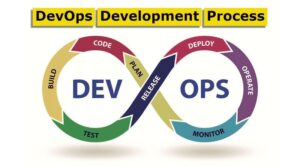
A career in Radio Frequency Engineering can offer many rewarding opportunities, from designing and developing new technology to creating innovative solutions for industry challenges.
With the rapid development of wireless communications, there is always room for new engineers to join the field.
Here are five reasons why you should consider a career in RF engineering:
1. The field of Radio Frequency engineering is constantly evolving, which means that you will be kept up-to-date on the latest advances in the technology sector.
2. As an RF engineer, you will be working with amazing technology that has the potential to change the world.
3. Radio Frequency Engineering can open up a lot of opportunities for you, including positions in industry, research labs, and more.
4. In order to be a successful RF engineer, you will need to have a good understanding of both theory and practical applications.
As technology advances and our world becomes more connected, so too does the field of Radio Frequency Engineering. This exciting field uses radio waves to transmit information or power, making it a critical part of many technological advancements.
Learning about Radio Frequency Engineering can help you gain a better understanding of how these technologies work and can provide you with the skills needed to pursue a career in this field.
Here are some key reasons why learning about Radio Frequency Engineering is important:
Radiofrequency engineering is essential for developing technologies like smartphones, Wi-Fi, and satellite radio. These devices rely on radio waves to communicate with each other and with other devices around the world.
Radiofrequency engineering also plays an important role in developing new medical treatments and diagnostics.
Understanding how these technologies work, RF engineers can develop ways to improve them or create new ones altogether.
How to Become a Radio Frequency Engineer
Radio Frequency engineers design, build, test, and maintain radio equipment and networks. They use their knowledge of electronics and physics to create devices that can send signals over long distances.
Becoming a Radio Frequency Engineer requires a degree in engineering or a related field, along with experience in radio technology.
Many companies require candidates to have certification from an accredited certification body, such as the National Board of Engineering and Technology (NBE).
How to get started with Radio Frequency Engineering?
Becoming a Radio Frequency Engineer is a relatively straightforward process if you have the right qualifications and experience.
There are a few things that you will need to do in order to get started, including completing an undergraduate degree in engineering, gaining work experience in RF engineering, and passing a professional certification exam.
Once you have these qualifications, you can start your career as a Radio Frequency Engineer
As a Radio Frequency Engineer, you will be responsible for designing, constructing, and maintaining equipment used in communication networks.
To become an RF engineer, you will need to have a degree in engineering or a related field and several years of experience working with radio frequency technology.
RF engineers typically work in teams responsible for the design and maintenance of communications systems. They may also work on projects that involve the development of new technologies.
The key qualifications for a successful career as a Radio Frequency Engineer include excellent problem-solving skills and knowledge of radiofrequency technology.
What is Radio Frequency Engineering and what are the benefits?
Radiofrequency engineering is the practice of designing, constructing, and operating systems and devices that use electromagnetic radiation in the radio frequency (RF) spectrum.
RF engineers design and build transmitters, receivers, antennas, and other RF components to support wireless telecommunications networks, satellite communications systems, radar systems, military applications, and more.
What equipment is needed to get started with RF engineering?
If you are interested in pursuing a career in Radio Frequency engineering, there are certain key pieces of equipment that you will need to start off with.
This includes a spectrum analyzer, a digital oscilloscope, an RF power meter, and an antenna.
Additionally, you will likely want to purchase a computer with appropriate software installed so that you can begin your research and development work.
There are many advantages to pursuing a career in Radio Frequency engineering, including the opportunity to work on cutting-edge projects and develop new technologies.
The basics of RF engineering: antennas, transmission lines, and receivers
In today’s world, RF engineering is essential for many different applications. From telecommunications to military technology, RF engineers design, and build networks and devices that use radio waves.
In this article, we’ll take a look at the basics of RF engineering: antennas, transmission lines, and receivers.
An antenna is simply a device that converts radio waves into electrical signals. Antennas can be simple or complex, depending on their construction and intended use. For example, a simple antenna is often just a wire loop suspended in the air.
A more sophisticated antenna may include multiple loops or elements that can be positioned to capture specific frequencies of electromagnetic radiation.
When designing an antenna system, you also need to consider the transmission line. A transmission line is like a long pipe that carries energy from one point to another.
Designing and troubleshooting radio circuits
RF engineering is the process of designing and troubleshooting radio circuits.Understanding the basics of RF engineering will help you design and troubleshoot radio circuits more effectively.
1. RF engineering is a specialized field that requires knowledge of both electrical and mechanical engineering. It involves designing and troubleshooting radio circuits.
2. A radio circuit can be simple or complex, and it can be used in many different applications. For example, a radio circuit might be used to send a signal from one location to another.
3. RF engineers must have skills in both design and troubleshooting because there are always potential problems with radio circuits. They need to be able to identify the problem and find a solution.
4. RF engineers must also be familiar with FCC regulations, which govern how radio waves can be used in the United States. Failure to comply with these regulations can result in fines or even imprisonment.
How to start a Radio Frequency Engineering career?
Starting out in radio frequency engineering can seem daunting, but with the right resources and guidance, you can start your career on the right foot. Here are some tips to get you started:
1. Start by networking. Get involved in industry groups and attend conferences to meet potential employers and learn about the latest technology trends.
2. Learn as much as you can. Eskom has created a free online course called Radio Frequency Engineering Fundamentals that is available to all students in South Africa. This course covers topics such as transmitter design, receiver operation, antennas, and transmission lines.
3. Build a portfolio of your work. Showcase your skills by submitting projects or papers that highlight your expertise in radio frequency engineering.
4. Pursue certification opportunities. Many employers require certification from professional organizations such as the Institute of Electrical and Electronics Engineers (IEEE).
Conclusion:
In conclusion, radio frequency engineering can benefit your career in a number of ways. By specializing in this field, you can gain valuable knowledge and experience that will help you stand out from the competition. Keep up the good work, and I look forward to seeing what you achieve in the future!







